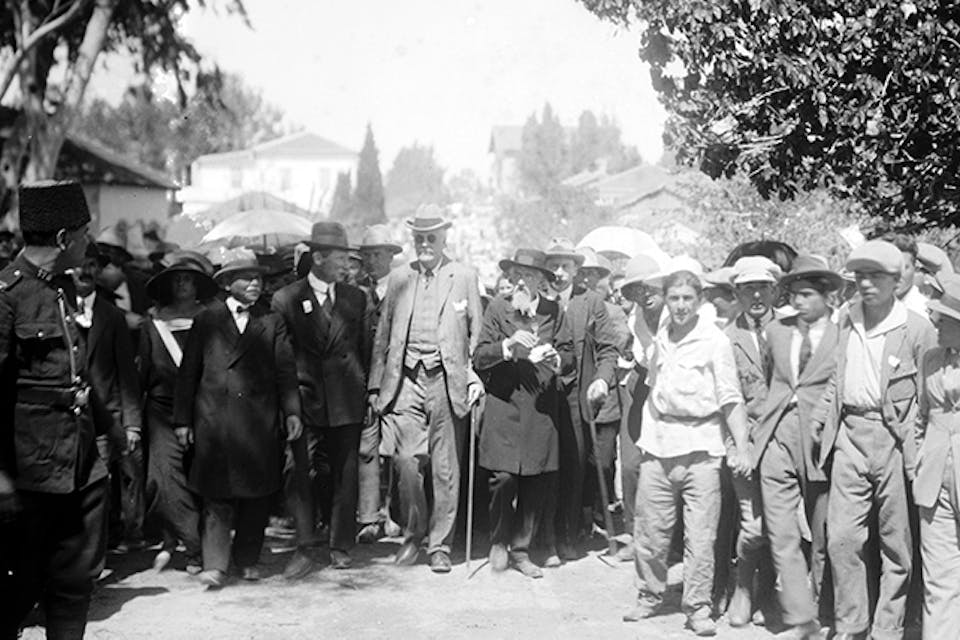
October 31, 2019
The Balfour Declaration and the Jewish Threat that Made Britain Honor It
How Zionist leaders held Britain to its promise of a Jewish national home.
November 2 marks the 102nd anniversary of the Balfour Declaration, about which I have previously written at length in Mosaic. There, I focused on how the actors who brought the declaration into being assured it would have international legitimacy, and on the tragic failure of Britain and the international community to keep their promise to the Jewish people in the aftermath. Here I want to reflect on an overlooked rationale proposed by the Zionist leader Chaim Weizmann to give the declaration some staying power after the world war would finally end.
Historians have long been preoccupied by this question: why did the war cabinet of Prime Minister David Lloyd George issue the November 2, 1917 declaration in the first place? After all, it seemed so improbable, both at the time and in retrospect. That sense of improbability was well expressed by the Hungarian Jewish writer Arthur Koestler, who called the declaration “an act dangerously outside the cautious routine of diplomacy. The whole thing was unorthodox, unpolitic, freakish.” Given that impression, the document quickly invited obsessive speculation as to the real motives behind it, and initially the speculation ranged very widely.
The guesswork would subside when Britain opened its archives in the 1970s. We now know that, far from being “unpolitic,” the Balfour Declaration was very politic indeed. The bottom line was this: the British war cabinet thought a declaration supporting a Jewish national home in Palestine would make for good propaganda among the Jews of Russia and America, who had been tepid in their support of the Allies in a war that had been dragging on for three long years. The Jews, so the reasoning went, would be fired by the prospect of a Jewish Zion, and would use their influence to keep Russia firmly in the fight and persuade the United States to step up.